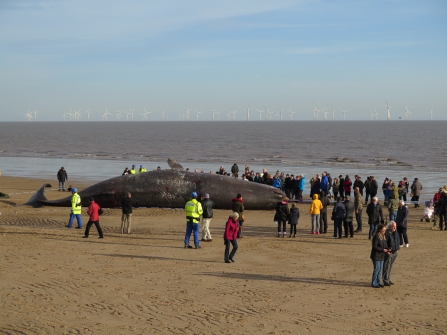The first three whales were found on the beaches at Skegness and Seacroft, the fourth on the inaccessible Wainfleet Marshes. All the animals were juvenile males. It has been confirmed that they were dead when they came ashore.
The Cetacean Strandings Investigation Programme have carried out autopsies on the whales at Skegness/Seacroft. It is hoped that this will provide an insight into why these animals were in shallow waters of the North Sea. It also provides a rare opportunity to learn more about these animals and how they live.

